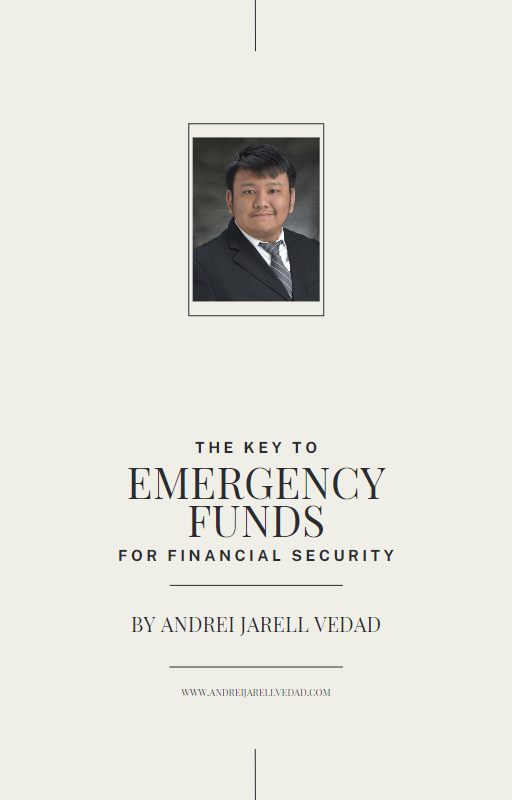Generational wealth holds immense significance for Filipinos, playing a pivotal role in shaping their financial well-being and paving the way towards a prosperous future. Understanding the importance of generational wealth empowers individuals and families to break free from financial constraints and achieve lasting financial freedom. By harnessing the potential of generational wealth, Filipinos can secure their financial legacy and create a solid foundation for future generations to thrive.
Generational wealth encompasses the accumulation and preservation of assets, financial knowledge, and opportunities passed down from one generation to another. It goes beyond individual success and focuses on creating a lasting impact that spans across time. With generational wealth, Filipinos can transcend the limitations of their current circumstances and embark on a transformative journey towards financial abundance.
Generational wealth acts as a catalyst for creating financial freedom, enabling individuals and families to break free from the shackles of debt, build a strong foundation, and attain long-term financial security. It provides the necessary resources and tools to navigate through life’s challenges, embrace opportunities, and leave a lasting legacy for future generations.
In this article, we will explore the multifaceted aspects of generational wealth and its profound implications for Filipinos. We will delve into the need for financial literacy, strategies to overcome debt, the power of saving and investing, maximizing income potential, estate planning and wealth preservation, instilling financial values in the next generation, harnessing technology for financial management, overcoming challenges and mindset shifts, and seeking professional guidance. By the end, you will have a comprehensive understanding of how generational wealth can serve as a springboard to financial freedom and a brighter future for Filipinos.
Table of Contents
Building a Solid Foundation

Financial education serves as the bedrock for achieving generational wealth and financial freedom. In a society where money management skills are paramount, Filipinos need to recognize the critical need for financial literacy and take proactive steps to empower themselves and their communities. By equipping themselves with essential financial knowledge, they can make informed decisions, overcome financial challenges, and secure a prosperous future for themselves and their families.
The Need for Financial Literacy in the Filipino Community
The Filipino community faces unique financial challenges that necessitate a strong emphasis on financial literacy. Many individuals and families struggle with budgeting, debt management, and understanding complex financial concepts. A lack of financial education perpetuates a cycle of financial instability and hinders progress towards long-term wealth creation.
To break this cycle, it is crucial to recognize the need for financial literacy in the Filipino community. By imparting practical financial knowledge, individuals can gain control over their finances, make sound financial decisions, and avoid common pitfalls. Financial literacy creates a ripple effect, fostering economic empowerment and enabling Filipinos to build a solid foundation for generational wealth.
Empowering Filipinos with Essential Financial Knowledge
Empowerment begins with education, and in the realm of personal finance, it is no different. Filipinos must actively seek out resources and opportunities to enhance their financial knowledge. They can attend financial literacy workshops, seminars, and webinars, where experts share insights on budgeting, saving, investing, and retirement planning.
Furthermore, online courses and educational platforms offer convenient access to a wealth of financial knowledge, covering topics such as managing debt, building credit, and creating effective financial plans. By engaging in self-study and continuous learning, Filipinos can gain the necessary skills to make informed financial decisions and set themselves on the path to prosperity.
Practical Ways to Improve Financial Literacy
Improving financial literacy requires a proactive and consistent effort. Here are some practical steps Filipinos can take to enhance their financial literacy:
- Reading Books and Publications: Explore books, articles, and blogs on personal finance to gain a deeper understanding of various financial concepts, strategies, and best practices.
- Following Financial Experts: Follow renowned financial experts and influencers who share valuable insights on social media platforms, podcasts, and YouTube channels. Their expertise can provide guidance and inspiration for your financial journey.
- Engaging in Personal Finance Communities: Join online communities or forums where individuals discuss personal finance topics. Engaging in discussions and sharing experiences can broaden your perspective and expose you to diverse ideas and strategies.
- Budgeting and Tracking Expenses: Start by creating a budget and tracking your expenses meticulously. This practice helps you understand your spending patterns, identify areas for improvement, and allocate resources efficiently.
- Exploring Online Resources: Utilize online tools and resources, such as budgeting apps, financial calculators, and investment platforms, to streamline your financial management processes and gain valuable insights into your financial health.
- Seeking Professional Advice: Consider consulting a certified financial planner or advisor, who can provide personalized guidance tailored to your specific financial goals and circumstances.
By embracing these practical ways to improve financial literacy, Filipinos can cultivate a strong foundation of knowledge, enabling them to navigate the complexities of personal finance, make informed decisions, and ultimately achieve generational wealth and financial freedom.
Breaking Free from Debt
Debt can be a significant obstacle on the path to financial freedom, but with the right strategies, Filipinos can break free from its grip and regain control over their finances. By assessing and managing debt, creating a tailored repayment plan, and building healthy financial habits, individuals can overcome debt and pave the way for a more secure financial future.
Assessing and Managing Debt: A Crucial First Step
Before tackling debt head-on, it’s essential to assess the current financial situation and understand the scope of the debt burden. Start by compiling a comprehensive list of all outstanding debts, including credit card balances, personal loans, and mortgages. Take note of interest rates, minimum payments, and due dates for each debt.
Once you have a clear picture of your debt landscape, prioritize them based on factors such as interest rates, outstanding balances, and payment terms. This assessment allows you to identify which debts are most pressing and require immediate attention.
With a thorough understanding of your debt, you can then develop a debt management plan. This plan may involve negotiating with creditors for lower interest rates or exploring debt consolidation options to streamline multiple debts into a single, more manageable payment.
Creating a Debt Repayment Plan Tailored to Your Needs
A debt repayment plan tailored to your specific financial situation is crucial in regaining control over your debt and achieving financial freedom. Begin by setting realistic goals for debt reduction and determining a timeline for repayment. Consider allocating more funds to higher-interest debts while making minimum payments on others to minimize the overall interest paid.
Two popular debt repayment methods are the snowball method and the avalanche method. The snowball method involves paying off debts with the smallest balances first, providing a psychological boost as you see progress sooner. The avalanche method focuses on paying off debts with the highest interest rates first, saving more money in the long run.
Choose the method that aligns best with your financial goals and personal preferences. Remember, the most important factor is consistency. Stick to your debt repayment plan and make regular, on-time payments to accelerate your progress.
Building Healthy Financial Habits to Prevent Future Debt
Breaking free from debt is only the first step towards financial freedom. To prevent future debt and maintain a healthy financial lifestyle, it’s crucial to develop and practice good financial habits.
Start by creating a realistic budget that aligns with your income and expenses. Track your spending to identify areas where you can cut back and save more money. Prioritize saving for emergencies and future expenses, as having a financial cushion can help prevent the need for additional debt in the face of unexpected events.
It’s also essential to establish an emergency fund. Aim to save at least three to six months’ worth of living expenses to provide a safety net in case of job loss, medical emergencies, or other unforeseen circumstances.
Another crucial habit to cultivate is responsible credit card usage. Limit credit card spending to what you can afford to pay off in full each month to avoid accumulating high-interest debt. Consider using debit cards or cash for everyday expenses to stay within your budget.
By building healthy financial habits, such as budgeting, saving, and responsible credit card usage, you can prevent future debt and maintain a strong financial foundation.
Breaking free from debt requires determination, discipline, and a well-crafted plan. By assessing and managing debt, creating a tailored repayment plan, and building healthy financial habits, Filipinos can overcome debt and set themselves on the path to financial freedom and long-term prosperity. Remember, every step taken towards debt freedom brings you closer to a brighter financial future.
The Power of Saving and Investing: Growing Wealth over Generations

In the pursuit of financial freedom and long-term wealth accumulation, saving and investing play pivotal roles. Cultivating a savings mindset, exploring investment options, and diversifying investments are essential strategies that can help Filipinos build a solid foundation for their financial future and secure wealth over generations.
Cultivating a Savings Mindset: Tips and Techniques for Filipinos
Developing a savings mindset is the first step towards building wealth. It involves adopting a disciplined approach to saving money and prioritizing long-term financial goals over immediate gratification. Here are some tips and techniques to cultivate a savings mindset:
- Set Clear Goals: Define specific financial goals, such as saving for retirement, education, or a down payment on a home. Having clear goals provides motivation and direction for your savings efforts.
- Create a Budget: Establish a budget that outlines your income, expenses, and savings targets. Tracking your spending and identifying areas where you can cut back can free up more funds for saving and investing.
- Automate Savings: Set up automatic transfers from your income to a separate savings account. By automating your savings, you ensure that a portion of your earnings goes directly towards your financial goals before you have the chance to spend it.
- Practice Frugality: Embrace a frugal lifestyle by being mindful of your spending habits. Look for ways to reduce unnecessary expenses and find more affordable alternatives without compromising on quality.
- Celebrate Milestones: Recognize and reward yourself when you achieve savings milestones or reach specific financial goals. Celebrating your progress reinforces positive behavior and motivates you to continue saving.
By adopting these tips and techniques, Filipinos can cultivate a savings mindset that forms the foundation of their financial success.
Exploring Investment Options: Finding the Right Fit for Filipinos
While saving money is essential, investing is the key to growing wealth over time. Exploring different investment options allows Filipinos to put their hard-earned money to work and generate returns. Here are some investment options to consider:
- Stocks: Investing in individual stocks or exchange-traded funds (ETFs) provides an opportunity to own a portion of companies and benefit from their growth and profitability.
- Bonds: Bonds are fixed-income securities that pay regular interest over a specified period. They offer a more stable investment option compared to stocks and can provide income and capital preservation.
- Mutual Funds: Mutual funds pool money from multiple investors to invest in a diversified portfolio of stocks, bonds, or other securities. They are managed by professional fund managers and offer an accessible way to invest in a diversified manner.
- Real Estate: Investing in real estate can provide both rental income and potential property appreciation over time. Real estate can be an attractive long-term investment option, especially in growing markets.
It’s crucial to research and understand the risks associated with each investment option and seek professional advice when needed. The right investment strategy depends on individual financial goals, risk tolerance, and time horizon.
Diversifying Investments for Long-Term Wealth Accumulation
Diversification is a fundamental principle of investing that aims to reduce risk by spreading investments across various asset classes and sectors. By diversifying their investment portfolio, Filipinos can mitigate the impact of any single investment’s performance and increase their chances of long-term wealth accumulation. Here are some key aspects of diversification:
- Asset Allocation: Allocate investments across different asset classes, such as stocks, bonds, real estate, and cash equivalents. The proportion of each asset class should be based on individual risk tolerance and financial goals.
- Geographic Diversification: Invest in assets from different countries and regions to avoid concentration risk. Global diversification allows investors to tap into various economies and potentially benefit from different market cycles.
- Industry and Sector Diversification: Within each asset class, diversify investments across different industries and sectors. This spreads the risk and ensures that the portfolio is not overly exposed to the performance of a single industry.
- Periodic Rebalancing: Regularly review and rebalance the investment portfolio to maintain the desired asset allocation. Rebalancing involves selling overperforming assets and buying underperforming assets to bring the portfolio back to the intended allocation.
Remember that diversification does not guarantee profits or protect against losses, but it can help reduce risk and increase the potential for long-term wealth accumulation.
By cultivating a savings mindset, exploring investment options, and diversifying investments, Filipinos can harness the power of saving and investing to grow wealth over generations. Building a strong financial future requires a commitment to saving, a thoughtful investment strategy, and a long-term perspective. Start today and take control of your financial destiny.
Maximizing Income Potential: Boosting Earnings for Financial Freedom

To achieve financial freedom and build generational wealth, maximizing income potential is a crucial aspect for Filipinos. By focusing on developing in-demand skills, exploring entrepreneurship opportunities, and navigating career advancement strategies, individuals can significantly boost their earnings and create a solid foundation for long-term financial success.
Developing In-Demand Skills: Investing in Education and Training
Investing in education and training is a powerful way to enhance skills and increase income potential. As industries evolve and new technologies emerge, staying ahead of the curve is essential for professional growth. Here are some key considerations when developing in-demand skills:
- Identify Industry Trends: Research and identify the industries that are experiencing growth and have a demand for specific skills. By aligning your educational pursuits with these trends, you can position yourself for lucrative job opportunities.
- Continuous Learning: Embrace a lifelong learning mindset by seeking out courses, certifications, and workshops that can enhance your skills. Whether it’s through online platforms, industry associations, or academic institutions, investing in ongoing education can open doors to higher-paying positions.
- Transferable Skills: Identify transferable skills that can be valuable across various industries. These skills, such as communication, problem-solving, and leadership abilities, can make you adaptable and sought after in different professional settings.
- Networking and Mentorship: Engage in networking activities and seek mentorship opportunities within your industry. Building meaningful connections can provide valuable insights, guidance, and potential career advancements.
By investing in education and training, Filipinos can develop in-demand skills that are highly sought after in the job market, leading to increased earning potential.
Exploring Entrepreneurship: Starting a Business in the Philippines
Entrepreneurship offers a unique avenue for maximizing income potential and achieving financial freedom. Starting a business allows individuals to take control of their financial destiny, capitalize on their passion and creativity, and generate substantial wealth. Here are some important factors to consider when exploring entrepreneurship:
- Identify a Market Need: Conduct market research to identify gaps or unmet needs in the marketplace. By addressing these needs with innovative products or services, you can carve out a niche for your business and attract customers.
- Business Planning: Develop a comprehensive business plan that outlines your vision, target market, marketing strategies, financial projections, and operational considerations. A well-thought-out plan provides clarity and increases the chances of success.
- Seek Expert Guidance: Engage with mentors, business coaches, or industry experts who can offer guidance and support throughout your entrepreneurial journey. Their insights and experience can help you navigate challenges and make informed decisions.
- Financial Management: Establish sound financial management practices from the beginning. This includes setting up a budget, tracking expenses, managing cash flow, and seeking funding options when necessary.
- Adaptability and Innovation: Stay agile and adaptable in a dynamic business environment. Continuously innovate and evolve your products or services to meet changing customer demands and stay ahead of the competition.
Starting a business can be a rewarding and fulfilling path to financial freedom, but it also requires dedication, perseverance, and a willingness to take calculated risks.
Navigating Career Advancement: Strategies for Professional Growth
Maximizing income potential also involves navigating career advancement opportunities within traditional employment settings. By strategically planning and positioning yourself for growth, you can climb the corporate ladder and increase your earning potential. Here are some strategies for career advancement:
- Goal Setting: Set clear career goals and objectives. Define the positions or roles you aspire to and create a roadmap for achieving them. This provides direction and helps you focus on the necessary steps for advancement.
- Continuous Skill Development: Similar to entrepreneurship, investing in continuous skill development is vital for career advancement. Attend industry conferences, participate in training programs, and seek out stretch assignments that allow you to learn and showcase your capabilities.
- Networking and Building Relationships: Cultivate professional relationships within your organization and industry. Attend networking events, engage in cross-functional collaborations, and seek mentors who can provide guidance and advocate for your growth.
- Proactive Performance Management: Take an active role in managing your performance. Seek feedback from supervisors, address areas of improvement, and consistently deliver high-quality work. Demonstrating your value and potential can lead to promotions and salary increases.
- Seek Opportunities for Leadership: Look for opportunities to take on leadership roles or lead projects within your organization. Demonstrating your leadership abilities can set you apart and position you for higher-level positions.
By strategically navigating career advancement opportunities, Filipinos can unlock higher-paying positions, greater job satisfaction, and increased income potential.
Maximizing income potential is a crucial component of achieving financial freedom. By investing in education and training, exploring entrepreneurship opportunities, and strategically navigating career advancement, Filipinos can create a solid foundation for long-term financial success. Take charge of your financial future, explore new possibilities, and pursue avenues that align with your goals and aspirations.
Estate Planning and Wealth Preservation: Securing Your Family’s Future

Estate planning plays a vital role in securing the financial well-being of Filipinos and ensuring the smooth transfer of generational wealth. By understanding the importance of estate planning, creating a will and establishing trusts, and implementing strategies for smooth succession, individuals can protect their assets and provide a solid foundation for their family’s future.
Understanding the Importance of Estate Planning for Filipinos
Estate planning is often overlooked or delayed, but its significance cannot be overstated. It involves making critical decisions about the distribution of assets, minimizing tax implications, and outlining instructions for end-of-life care. For Filipinos, estate planning holds particular importance due to the cultural emphasis on family and intergenerational support.
By engaging in estate planning, individuals can:
- Preserve Wealth: Estate planning ensures that the wealth accumulated over a lifetime is protected and passed on to future generations. It provides a strategic framework for managing assets and minimizing the risk of potential disputes or loss.
- Provide for Loved Ones: Estate planning allows individuals to determine how their assets will be distributed among family members, dependents, or charitable organizations. This ensures that their loved ones are taken care of and their financial needs are met.
- Minimize Tax Liability: Proper estate planning can help minimize tax obligations and preserve a larger portion of the estate for beneficiaries. By employing legal strategies and tools, individuals can optimize their estate’s tax efficiency.
- Avoid Probate Challenges: Without an estate plan, the distribution of assets may be subject to probate, which can be a time-consuming and costly legal process. Estate planning provides clarity and reduces the likelihood of family disputes or legal complications.
Creating a Will and Establishing Trusts: Protecting Your Assets
Two essential components of estate planning are creating a will and establishing trusts. These legal documents enable individuals to protect their assets, specify their wishes, and provide clear instructions for asset distribution. Here’s an overview of their significance:
- Will: A will is a foundational document that outlines how an individual’s assets should be distributed after their passing. It allows individuals to name beneficiaries, designate guardians for minor children, and appoint an executor to oversee the administration of the estate. Creating a will ensures that one’s wishes are carried out and provides peace of mind.
- Trust: Trusts are powerful tools for asset protection and management. They allow individuals to transfer ownership of their assets to a separate legal entity, known as a trust. Trusts can be revocable or irrevocable, and they offer flexibility in terms of control and tax planning. By establishing a trust, individuals can avoid probate, maintain privacy, and provide for specific conditions of asset distribution.
Passing on Generational Wealth: Strategies for Smooth Succession
Passing on generational wealth requires careful planning and consideration of the unique circumstances and goals of each family. Here are some strategies to ensure a smooth succession process:
- Open Communication: Engage in open and honest conversations with family members about wealth transfer and inheritance plans. Encourage dialogue to address concerns, clarify intentions, and manage expectations.
- Identify Successors: Identify and groom successors who will manage the family’s wealth and carry on its legacy. Provide them with the necessary knowledge, skills, and guidance to take on this responsibility effectively.
- Consider Philanthropic Endeavors: Explore philanthropic opportunities as part of the wealth transfer plan. Establishing charitable foundations or trusts can not only support meaningful causes, but also provide tax advantages for the estate.
- Regularly Review and Update: Estate planning is not a one-time event but an ongoing process. Regularly review and update your estate plan to reflect changes in family dynamics, financial circumstances, or legal regulations.
By understanding the importance of estate planning, creating a will and establishing trusts, and implementing strategies for smooth succession, Filipinos can secure their family’s future and protect the wealth they have worked hard to build.
As you embark on your estate planning journey, consult legal and financial professionals to ensure that your plan aligns with your goals and complies with applicable laws and regulations. By taking proactive steps to safeguard your family’s financial well-being, you are shaping a brighter future for generations to come.
Building a Legacy: Teaching Financial Values to the Next Generation

As Filipinos, we have a responsibility to pass on not just our wealth, but also our financial knowledge and values to the next generation. By instilling financial responsibility in children from an early age, promoting financial literacy in schools and communities, and mentoring and guiding the next generation, we can empower them to achieve long-term financial success.
Instilling Financial Responsibility in Children: Starting Early
Teaching children about financial responsibility from a young age is crucial in preparing them for a financially secure future. Here are some key steps to instill financial responsibility in children:
- Introduce the Concept of Money: Start by teaching children the basic concepts of money, such as its value and how it is earned through work. Use real-life examples and engage them in age-appropriate discussions about money.
- Encourage Saving and Budgeting: Teach children the importance of saving money for short-term goals and future needs. Help them set up a savings jar or bank account, and guide them in creating a budget for their allowances or earnings.
- Promote Wise Spending: Teach children to differentiate between needs and wants, and encourage them to make thoughtful spending decisions. Teach them about delayed gratification and the value of saving up for something they truly desire.
- Lead by Example: Children learn best by observing their parents and caregivers. Be a positive financial role model by demonstrating responsible money management, making informed financial decisions, and discussing financial choices openly.
Promoting Financial Literacy in Schools and Communities
Financial literacy education should not be limited to the home. It is essential to promote financial literacy in schools and communities to ensure that all young individuals have access to the necessary knowledge and skills to make informed financial decisions. Here’s how we can promote financial literacy in these settings:
- Curriculum Integration: Advocate for the inclusion of financial literacy education in school curricula at all levels. Collaborate with educators and policymakers to develop age-appropriate financial literacy content and integrate it across various subjects.
- Community Workshops and Programs: Organize financial literacy workshops and programs in collaboration with community organizations, local businesses, and financial institutions. These initiatives can provide practical knowledge on budgeting, saving, investing, and debt management.
- Partnerships with Financial Institutions: Foster partnerships between schools and financial institutions to bring financial literacy resources and expertise into the educational system. This can include guest lectures, internship opportunities, and mentorship programs.
- Engaging Parents and Guardians: Involve parents and guardians in financial literacy initiatives by providing resources and workshops specifically designed for them. Emphasize the importance of reinforcing financial education at home and encourage open conversations about money.
Mentoring and Guiding the Next Generation for Financial Success
Mentoring plays a vital role in guiding the next generation towards financial success. By sharing our experiences, providing advice, and offering support, we can help young individuals navigate the complexities of personal finance. Here are some strategies for effective mentoring:
- Establish Meaningful Connections: Seek opportunities to connect with young individuals who are eager to learn about personal finance. This can be through formal mentoring programs, volunteering, or even within your own family or community.
- Share Personal Financial Experiences: Openly share your own financial journey, including successes, challenges, and lessons learned. By sharing personal experiences, you can provide relatable examples and inspire young individuals to make informed financial decisions.
- Provide Guidance on Goal Setting: Help mentees set realistic financial goals and guide them in developing a roadmap to achieve those goals. Teach them about the importance of setting priorities, creating a budget, and tracking their progress.
- Encourage Continuous Learning: Foster a culture of continuous learning by recommending books, articles, podcasts, and online resources that can enhance mentees’ financial knowledge. Encourage them to attend workshops, seminars, and webinars on personal finance topics.
By instilling financial responsibility in children, promoting financial literacy in schools and communities, and mentoring and guiding the next generation, we are setting them on the path to financial success. As they develop a solid understanding of money management and make informed financial choices, they will be better equipped to build their own generational wealth and secure a brighter financial future.
Harnessing the Power of Technology: Tools and Resources for Financial Management

In today’s digital age, technology has revolutionized the way we manage our finances. Filipinos now have access to a wide range of tools and resources that can greatly assist in achieving financial management goals. From mobile banking and digital wallets to personal finance apps and online investment platforms, these technological advancements provide convenient and user-friendly solutions for individuals seeking to take control of their financial well-being.
Mobile Banking and Digital Wallets: Convenient Financial Solutions
Mobile banking has transformed the way we conduct financial transactions. With just a few taps on our smartphones, we can easily check account balances, transfer funds, pay bills, and even apply for loans. The convenience of mobile banking allows Filipinos to manage their finances on the go, saving time and effort.
Digital wallets have also gained popularity, providing a secure and convenient way to make payments and store financial information. These digital payment platforms enable users to link their bank accounts or credit cards, making transactions seamless and efficient. Filipinos can now pay for purchases, transfer money to friends and family, and even settle bills with just a few clicks.
The accessibility and convenience offered by mobile banking and digital wallets empower Filipinos to stay on top of their financial transactions, ensuring better financial management and control.
Personal Finance Apps: Tracking, Budgeting, and Goal Setting
Personal finance apps have emerged as powerful tools for tracking expenses, budgeting, and setting financial goals. These apps provide users with a comprehensive overview of their income, expenses, and savings, allowing for better financial planning and decision-making.
By syncing bank accounts and credit cards, personal finance apps automatically categorize transactions, providing insights into spending patterns and identifying areas where savings can be made. These apps often offer budgeting features, enabling users to set spending limits for different categories and receive alerts when they exceed their budget.
Moreover, personal finance apps allow users to set financial goals, such as saving for emergencies, a down payment on a house, or retirement. These apps track progress toward these goals, providing motivation and encouragement along the way. Some apps even offer educational resources and personalized recommendations to help users optimize their financial strategies.
With personal finance apps, Filipinos can easily monitor their financial health, make informed decisions, and work toward achieving their long-term financial aspirations.
Online Investment Platforms: Accessible and User-Friendly Tools
Investing in the Philippines has become more accessible than ever, thanks to online investment platforms. These platforms offer Filipinos a wide range of investment options, including stocks, bonds, mutual funds, and exchange-traded funds (ETFs). They provide a user-friendly interface that simplifies the investment process, making it accessible even to those with limited knowledge of financial markets.
Online investment platforms typically offer educational resources, research tools, and investment calculators to help users make informed investment decisions. They allow individuals to buy and sell securities with ease, monitor portfolio performance, and track market trends in real-time.
Moreover, some platforms offer automated investment services, often referred to as robo-advisors. These services use algorithms to create and manage investment portfolios based on users’ risk tolerance and financial goals. Robo-advisors provide a low-cost and hands-off approach to investing, making it an attractive option for beginners or individuals with busy lifestyles.
By leveraging online investment platforms, Filipinos can take advantage of the growth potential of the financial markets and start building their wealth over time.
Harnessing the power of technology has transformed the landscape of financial management for Filipinos. Mobile banking and digital wallets offer convenience and accessibility, personal finance apps enable better tracking and budgeting, and online investment platforms provide opportunities for wealth accumulation. By embracing these tools and resources, individuals can take proactive steps toward achieving their financial goals and securing a brighter future for themselves and their families.
Overcoming Challenges and Mindset Shifts: Embracing Financial Freedom

Achieving financial freedom is not without its challenges. It requires individuals to confront cultural norms, shift their mindset from scarcity to abundance, and overcome various barriers that hinder financial success. By recognizing and addressing these challenges, Filipinos can embrace a new perspective on money and take meaningful steps towards achieving their financial goals.
Breaking Cultural Norms and Stereotypes Around Money
In the Filipino culture, certain norms and stereotypes regarding money can impact one’s ability to achieve financial freedom. It is common for Filipinos to prioritize immediate needs and familial obligations over long-term financial planning. The notion of “utang na loob” or indebtedness to others can often hinder individuals from focusing on their own financial well-being.
Breaking free from these cultural norms requires a shift in mindset and a willingness to challenge societal expectations. Filipinos must recognize the importance of financial independence and understand that taking care of their own financial future is not a selfish act, but rather a means to create stability and security for themselves and their loved ones.
Shifting Mindsets: From Scarcity to Abundance
Another significant challenge in embracing financial freedom is shifting from a scarcity mindset to an abundance mindset. Many Filipinos grow up with the belief that resources are scarce and that opportunities for financial success are limited. This mindset can create a fear of taking risks and a reluctance to explore new avenues for wealth creation.
To overcome this challenge, individuals must cultivate an abundance mindset that recognizes the potential for growth and prosperity. It involves adopting a positive outlook, embracing opportunities, and believing in one’s ability to create wealth. By focusing on possibilities rather than limitations, Filipinos can open themselves up to new avenues of financial growth and seize opportunities that can lead to long-term prosperity.
Overcoming Barriers to Financial Success: Persistence and Resilience
The journey to financial freedom is rarely a smooth one. It is inevitable that individuals will face obstacles along the way. These barriers can include personal setbacks, economic challenges, or unexpected financial emergencies. Overcoming these hurdles requires persistence and resilience.
It is essential for Filipinos to develop a strong sense of determination and perseverance in the face of adversity. They must be willing to learn from their mistakes, adapt to changing circumstances, and stay committed to their financial goals. By cultivating resilience, individuals can navigate through challenging times and bounce back stronger, ensuring that setbacks do not derail their path to financial freedom.
Moreover, seeking support from a community or network of like-minded individuals can provide encouragement and motivation during difficult times. Engaging in financial education programs, attending seminars, or joining online communities can offer valuable insights and a support system to help individuals overcome barriers and stay on track towards their financial goals.
In conclusion, embracing financial freedom requires Filipinos to overcome challenges and make mindset shifts. Breaking cultural norms and stereotypes around money, shifting from a scarcity to an abundance mindset, and persisting through barriers are crucial steps in achieving financial success. By confronting these challenges head-on, individuals can pave the way towards a brighter financial future and empower themselves to create lasting generational wealth.
Seeking Professional Guidance: Working with Financial Advisors

When it comes to managing your finances and building generational wealth, seeking professional guidance can be a game-changer. Financial advisors play a crucial role in helping Filipinos navigate the complex world of personal finance and make informed decisions that align with their goals. In this section, we will explore the role of financial advisors, how to find the right advisor for your needs, and the benefits of collaborating with experts to create a comprehensive financial plan.
The Role of Financial Advisors: Why Filipinos Should Consider Them
Financial advisors are trained professionals who specialize in providing personalized guidance and advice on various aspects of financial planning. They bring a wealth of knowledge and expertise to the table, helping individuals and families make sound financial decisions that can have a lasting impact on their financial well-being.
One of the key reasons why Filipinos should consider working with a financial advisor is the complexity of today’s financial landscape. From investment strategies to retirement planning, tax optimization, and risk management, navigating these areas can be overwhelming for individuals without the necessary expertise. Financial advisors act as trusted partners who can simplify these complexities and provide customized solutions based on their clients’ unique circumstances.
Furthermore, financial advisors bring objectivity to the table. Emotions can often cloud judgment when it comes to money matters. Advisors provide an unbiased perspective, helping clients make rational decisions and avoid common pitfalls. They assess financial goals, analyze risk tolerance, and develop strategies that align with their clients’ objectives.
Finding the Right Financial Advisor for Your Needs
Finding the right financial advisor is a crucial step in establishing a successful partnership. Here are some essential factors to consider when searching for the perfect fit:
- Qualifications and Credentials: Look for advisors who hold relevant certifications, such as Certified Financial Planner (CFP) or Chartered Financial Analyst (CFA). These designations indicate a commitment to professional standards and ongoing education.
- Expertise and Specialization: Consider advisors who specialize in the areas that align with your financial goals. Whether it’s retirement planning, investment management, or estate planning, finding an advisor with the right expertise can make a significant difference.
- Reputation and Track Record: Research the advisor’s reputation by reading client reviews, testimonials, and checking if any disciplinary actions have been taken against them. A proven track record of success is an indicator of their ability to deliver results.
- Fee Structure: Understand how the advisor is compensated. Some may charge a flat fee, while others earn commissions from financial products they recommend. Choose an advisor whose fee structure aligns with your preferences and needs.
- Compatibility and Communication: Schedule an initial consultation with potential advisors to gauge their communication style and assess whether there is a good personal and professional fit. Clear and open communication is essential for a successful long-term relationship.
Collaborating with Experts: Creating a Comprehensive Financial Plan
Working with a financial advisor is not a one-time interaction but an ongoing collaboration. Advisors help clients develop a comprehensive financial plan that encompasses short-term and long-term goals, risk management strategies, investment plans, and retirement planning.
A financial plan provides a roadmap for achieving financial freedom and allows individuals to track their progress over time. Advisors review and adjust the plan as circumstances change, ensuring that it remains aligned with evolving goals and market conditions.
Collaborating with experts also extends beyond the advisor themselves. Financial advisors often have access to a network of professionals, such as estate planning attorneys, tax specialists, and insurance agents. This collaboration ensures that all aspects of a client’s financial picture are considered and addressed comprehensively.
In conclusion, working with a financial advisor can be a transformative experience for Filipinos seeking to build generational wealth. The role of financial advisors goes beyond providing investment advice; they act as trusted partners who offer objective guidance, help navigate complexities, and create personalized financial plans. By finding the right advisor and collaborating with experts, individuals can gain the knowledge, confidence, and strategies needed to achieve their financial goals and secure a brighter future.
Conclusion
As we reach the conclusion of our exploration into the world of generational wealth and financial freedom for Filipinos, it is crucial to reflect on the key takeaways and the immense significance of this journey. By embracing the path towards financial freedom and understanding the power of generational wealth, Filipinos can shape a brighter future for themselves and their families.
Embracing the Journey: Taking Action towards Financial Freedom
The journey towards financial freedom begins with a single step—a decision to take control of one’s financial well-being and actively work towards a secure future. It is a commitment to learning, growing, and making informed decisions that align with long-term goals. By embracing this journey, Filipinos can break free from the limitations of financial constraints and create a life of abundance and opportunity.
It is important to recognize that the path may not always be smooth. There will be challenges, setbacks, and obstacles along the way. However, with determination, resilience, and a clear vision, it is possible to overcome these hurdles and continue progressing towards financial freedom. Each small step forward, whether it is paying off debt, saving diligently, or making smart investments, contributes to the overall journey.
The Power of Generational Wealth: Shaping a Brighter Future for Filipinos
Generational wealth is not just about individual financial success; it is about leaving a lasting legacy that can positively impact future generations. By building and preserving wealth over time, Filipinos can provide their families with opportunities, stability, and security. It breaks the cycle of financial struggle and empowers future generations to pursue their dreams and aspirations.
Generational wealth also allows Filipinos to contribute to the growth and prosperity of their communities and the nation as a whole. By harnessing the power of their financial resources, individuals can support local businesses, invest in infrastructure, and drive economic development. This collective effort creates a ripple effect, elevating the overall standard of living and fostering a more prosperous society.
The journey towards financial freedom and generational wealth is not an easy one, but it is undoubtedly worth it. By taking action, educating ourselves, and making sound financial decisions, Filipinos can pave the way for a brighter future. It is a journey that requires commitment, discipline, and a long-term perspective. But the rewards go beyond individual gain—they extend to the well-being and prosperity of future generations. So, let us embark on this journey together, shaping a future where financial freedom is attainable for all Filipinos.
Relevant Blog Posts
Here are some relevant blog posts that you can read after this one:
- The Key To Emergency Funds For Financial Security
- Ways To Secure Your Finances Right Now
- Building An Emergency Fund On A Low Income
- How To Stay Motivated To Achieve Your Financial Goals
- Budgeting For College Students in the Philippines
- How To Save Money On A Tight Budget
- 10 Lucrative Side Hustles You Can Start from Home Today
- 10 Profitable Small Business Ideas for Filipinos in 2023
- Passive Income Ideas For Filipinos
- Frugal Living Tips For Filipinos
- Smart Habits That Helps You Save Money
- Get Debt-Free: Expert Tips and Tricks to Pay Off Your Debts
- Money Management Made Easy: Why You Need Separate Budget Accounts
- Budgeting 101: How to Create a Personal Budget that Works for You
I hope these blog posts are useful and informative to you.
For Your Reference
Budgeting
For your reference, you can read these blog articles relevant to budgeting:
- What Is Financial Literacy?
- Budgeting When You’re Broke
- The Beauty of Budgeting
- 5 Rules to Improve Your Financial Health
- Calculate Your Debt-to-Income Ratio
- 8 Financial Tips for Young Adults
- 5 Signs That You’re Living Beyond Your Means
- 4 Easy Budgeting Techniques
- 3 Common Budgeting Challenges to Overcome
- Zero-Based Budgeting: Benefits and Drawbacks
- Best Budgeting Apps
- What Is a Budget? Plus 10 Budgeting Myths Holding You Back
- Basic Budgeting Tips Everyone Should Know
- Budgeting Basics To Help You Manage Your Money
- Understanding Budgeting & Personal Finance
- 5 Simple Budgeting Guidelines to Follow
- The 50/30/20 Rule of Thumb for Budgeting
- Strategies for Budgeting and Saving Money
- Different Budgeting Techniques to Try
- Understanding Budgeting & Personal Finance
- Budgeting for Kids: How To Teach It and Why It Matters
- Budgeting for Teens: What You Need to Know
- 10 Budgeting Pitfalls and How to Avoid Them
Debt
For your reference, you can read these blog articles relevant to debt:
- What Is Debt?
- Student Loan Debt vs. Credit Card Debt
- Good Debt vs. Bad Debt: What’s the Difference?
- A Step-by-Step Guide To Getting Out of Debt
- Choose the Debt Payoff Strategy That’s Right for You
- A Guide to Debt Settlement
- 12 Tips for Sticking to Your Debt Payoff Plan
- 6 Steps to Get Out of Debt
- How to Pay Off Credit Card Debt
- What Is the Debt Avalanche Strategy?
- What Is Debt Consolidation?
- What Is a Debt Repayment Plan?
- How to Create a Debt Elimination Plan
- Debt Avalanche vs. Debt Snowball: What’s the Difference?
- Debt Settlement: Cheapest Way to Get Out of Debt?
Emergency Funds
- Why an Emergency Fund Is More Important Than Ever
- How to Build an Emergency Fund
- The best protection against bad trouble is good planning
- How Much Cash Should I Keep in the Bank?
- Emergency Funds
- 8 Reasons You Need an Emergency Fund
- What Amount Do Retirees Need in an Emergency Fund?
- How To Use Your Emergency Fund and Make It Last
- Rule of Thumb: How Big Should Your Emergency Fund Be?
- When to Use Your Emergency Fund
- Rainy Day Fund vs. Emergency Fund – Do You Need Both?
- It’s Time to Build a Better Emergency Fund
- How to Prepare Your Emergency Fund
- Emergency Cash Reserves
- 7 Tips for Building an Emergency Fund
Disclaimer
I am not a financial advisor. Please note that the information provided on this website is for general informational purposes only and should not be considered as financial advice.
While I strive to ensure the accuracy and timeliness of the information presented, financial situations can vary, and the content may not be applicable to everyone. Therefore, it is essential to consult with a qualified financial professional or advisor before making any financial decisions.
It is important to understand that investing and financial planning involve risks, and there are no guarantees of specific outcomes or returns.
By accessing this website or engaging in consultations, you acknowledge and agree that any actions taken based on the information provided are at your own risk, and I shall not be held liable for any direct or indirect consequences arising from such actions.
Get My E-books For Free!


Take control of your financial future and download my e-books: “Ways to Secure Your Finances Right Now” and “The Key To Emergency Funds For Financial Security” today! This comprehensive guides are packed with practical strategies and expert advice to help you achieve financial security and improve your financial literacy.
By subscribing to my Substack Newsletter, you’ll gain access to exclusive content, regular updates, and valuable insights on personal finance. You’ll stay informed about the latest financial trends, investment opportunities, and money-saving tips.
Don’t miss out on this opportunity to equip yourself with the knowledge and tools needed to secure your financial future. Join our community of motivated individuals who are committed to achieving financial freedom and success.
Subscribe to my Substack Newsletter today and get instant access to the e-book “Ways to Secure Your Finances Right Now.” Take the first step towards a brighter financial future. Your journey to financial security starts now!
Affiliate Links Disclaimer
My blog posts contain referral/affiliate links, so I can potentially earn via commission. It would help me a lot when you use my referral/affiliate links

Andrei Jarell Vedad is a passionate financial literacy advocate from the Philippines. With a background in Information Technology and currently pursuing a law degree, Andrei combines his knowledge and expertise to empower individuals in managing their personal finances. Through his blog and extensive research, he shares practical tips, strategies, and thought-provoking articles to help readers make informed financial decisions and achieve their financial goals. With a global perspective, Andrei aims to inspire positive change and foster financial well-being, not only in the Philippines but also worldwide.




